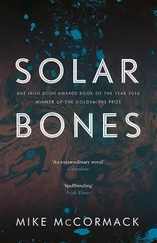“Don’t worry,” she said dryly. “I only want to take your pulse.” She encircled my wrist with her fingers and after a few moments, nodded with satisfaction. “Near normal,” she said.
I told her I was feeling much better.
“There you are then,” she said. “Sometimes these traditional cures do seem to work.”
DUPONT CAME BACK sometime during that day. He dropped by my room after doing his round of the wards.
“I’m glad your fever’s down,” he said. “I was afraid I’d have to take my own clothes off and lie down beside you for a while.” He laughed at my embarrassment. “I hear from Clara you got a little overexcited last night. Maybe it’s a sign you’re recovering from your broken heart, too.”
I couldn’t think of anything to say.
“We all wish love would be eternal and exclusive,” he said. “But it rarely seems to be the case. We lose one love, find another, and we’re sure this time it’ll last forever. And so on and so on. Lovers are supreme optimists at heart.”
But I refused to feel optimistic. Though my fever had definitely receded, I was certain a cure for my broken heart was just as remote as before.
Some weeks went by and all signs of my fever were completely gone. To pass the time, I’d begun helping out the nurses around the hospital, changing beds, polishing floors, working in the little garden, and trying to be useful generally. Dupont and Clara were busy during the days, but we’d usually get together for dinner at night. We all got along well. Sometimes we talked about the Tollgate and Duncairn. I didn’t even mind talking about Miriam, and they were careful to be respectful of my broken heart.
One morning as I was watering the garden, two military jeeps came hurtling into the compound, clouds of sand trailing behind them. They carried six soldiers and an officer. Dupont came out to see what was going on, and I heard the officer ask if he’d go with the patrol to a nearby place where a rebel group had recently attacked a platoon of government soldiers. Apparently Dupont often accompanied these patrols in case medical help was needed.
He came back into the hospital for his medical kit, saw me, and wondered if I’d keep him company.
“It’s bound to be interesting,” he said. “These rebels have a reputation for doing odd things with their victims.”
That should have been enough to make me hesitate. But I was so full of pent-up energy now that my fever had disappeared I said I’d really like to go.
ROOM WAS MADE for me in the jeep beside Dupont and we sped away, generating our own sandstorm. After five or six miles, the jeeps slowed down for a moment. The officer, who was in the front passenger seat, pointed ahead.
A few hundred yards off to the north, thick black columns of smoke were rising from the ground.
Before I had a chance to say anything, Dupont shook his head.
“Not smoke,” he said. “Flies.” Oh no, I thought.
WE GOT OUT of the jeeps at the edge of what looked like a volcanic crater, fifty yards or so wide. This was the area where the battle had occurred. Now that the jeeps’ engines were switched off, the noise from the seething black pillars of flies was as loud as an express train hurtling past. The columns towered over heaps on the ground that weren’t yet identifiable, though it was easy to guess. The soldiers threw rocks and the flies scattered, buzzing angrily. Then the soldiers, Dupont, and I scrambled down into the crater.
The withdrawal of the flies revealed an awful sight: not just dead body after dead body but each of the bodies eviscerated, their intestines draped around them like carnival decorations. A few had been dismembered and their various parts then grotesquely reassembled. Some had been given four legs, or four arms. In one case, a bloody head protruded from a split stomach, as though in an agonizing birth. Desert plants had been stuck in mouths and eyeholes.
The body parts weren’t all human. A herd of goats had been cut up, too. Goats’ heads and limbs had been put on human torsos. Human heads and limbs were attached to goats’ bodies. Some of these hybrids had been propped up with sticks so that from a distance they looked alive.
Dupont didn’t have to spend too much time on his examination. The victims, twenty in all, were quite dead and the flies were aggressively reassembling around their banquet.
The officer ordered us all back into the jeeps. He feared the rebels might be hiding nearby watching our movements, ready to attack if we lingered. So we quickly drove away from that awful place.
After a mile or so, the jeeps paused on top of a hill and we looked back. We could see no movement, only the faint outline of the columns of flies again.
“Just as well no one lived,” Dupont told me. “Sometimes we find survivors in such a state the only humane medical treatment is to shoot them.” He looked at me. “That may sound like a violation of ethics, but in my view it would be a crime to keep them alive.”
BACK AT THE hospital, we sat together over a cup of coffee.
“I used to wonder why they mutilated the bodies that way,” said Dupont. “Then last year I had a chance to talk to one of the rebel leaders. He’d been shot in the stomach during an ambush and captured by government troops. They were taking him to the capital for a show trial and were afraid he’d die of his wound on the way. They stopped in at the hospital and asked me to give him a shot of morphine to keep him alive.
“That’s when I asked him why his men treated the bodies of soldiers this way. His dialect was hard to follow, but I understood him to say that people of the region had been doing this to their enemies, and vice versa, since time immemorial. Yes, there was an element of pure terror in it, but it was more than that. The combining of parts of animals, humans, and plants was to show off the superior creativity of the rebels — that they could come up with forms even the gods hadn’t thought of.” Dupont hesitated. “That’s if I understood him properly. He was in a great deal of pain and I didn’t know the language well. Anyhow, I gave him the morphine and it kept him alive long enough to be taken to the capital, where they hanged him in the city square a few days later before a big crowd.”
I was shocked at how cruelly human beings could behave. I said so to Dupont and he thought for a while.
“It’s true we do inflict a lot of pain on each other,” he said. “But it’s nothing compared to the suffering in this world that we’re not responsible for. As a physician, I’ve seen decent, kindly people in agony from cancers, snakebites, diseases, malarial fevers, and so on. Not to mention schizophrenia and a host of mental torments that make life unbearable for the sufferers and their families. Even children who haven’t had time to do anything wrong aren’t spared. What about that little baby born without a head? Who’s to blame for that? Clara says you were a bit upset over it.” He frowned. “If there is indeed a Creator, it’s easy to understand why some people think He’s either the torturer-in-chief or has a very sadistic sense of humour.”
Those words reminded me of my father scoffing at the Theory of Intelligent Design, and of Miriam Galt describing the cruelty of nature. Dupont would have seen eye to eye with each of them on that matter.
EARLY ON THE morning after the massacre, Dupont knocked at the door of my room and came in, looking upset.
“All foreign nationals have been ordered out of the country immediately,” he said. “The government can’t guarantee our safety any longer.” Apparently this official decision had been brought on by a rash of rebel attacks not far from the hospital. It would have to be evacuated. Dupont and Clara, along with the rest of the staff, would be permitted to stay on for another week to wrap up affairs and ensure that all the patients were transported back to their villages. Dupont had tried to persuade the authorities to let me stay on, too, and help with the evacuation. They wouldn’t hear of it since I wasn’t a medical professional.
Читать дальше











